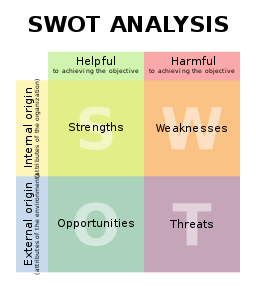What is Meditation?
Meditation!!! A word, which is ruling the world for a long time. One might have come across a situation when people suggest meditation as a remedy. Cure-all is a name for a medicine, which is supposed to cure all the problems. Anxiety, Stress, Anger, Personal Development, Concentration and finally living at the moment - for all these, meditation is a best remedy.
So what exactly is meditation? - A medicine? or a treatment method? or mind technique? or something related to spiritual teachings?
In this post, I have tried my best to explain about meditation and its benefits as simple as possible,
Definition of Meditation:
Many gurus already well defined the term meditation. Let's see some of them,
"Meditation is an unbroken flow of thoughts towards the object of concentration like pouring of oil from one vessel to another in a steady unbroken stream." - Patanjali Rishi
"Meditation means the mind is turned back upon itself. The mind stops all the thought-waves and the world stops. Your consciousness expands. Every time you meditate you will keep your growth." - Swamy Vivekananda
"Meditation is adventure, the greatest adventure the human mind can undertake. Meditation is just to be – no action, no thought, no emotion. You just are, and it is sheer delight." - Osho
"There is only one meditation - the rigorous refusal to harbor thoughts." - Nisargadatta Maharaj
I hope, while reading these quotes, you might have felt lighter. To retain that lightness for a lifetime, start meditating now.
How to do meditation?
"But these words are like puzzles and I still don't get what meditation is. How can I do it?" - If this is what you think now, Let me share my opinion.
All these definitions and what ever you find in google or in some page(including mine), they are just a tip of an iceberg. My opinion is, instead of reading those words, one must actually try.
Nisargadatta Maharaj nicely quoted about it saying "The talk is in your world. In mine - there is eternal silence. My silence sings, my emptiness is full. I lack nothing. You cannot know my world until you are there".
If you are happy, you can tell that you are happy. if the other person haven't experienced the happiness, all your words can't make him realize what happiness is. It needs experience, not explanation. I am not a Guru or enlightened one. All I can share is my own experience.
Start immediately - Tomorrow never comes. if you want to practice meditation, today is the good day to start. You don't need any expensive yoga mate or candles to start it. They are part of ritual only; not the ritual. Just sit down and start with 5 minutes time-frame.
Make it as a habit - Mind is tricky. If you start observing it, it will try to evade. It will search 100 reasons on the second day to not meditate. That is why Gurus always ask us to make it as a habit/ritual. If we have to sit at a particular time on particular place every day, then we have to. There are no excuses. Meditation should be part of your daily tasks. Even-though morning and evening are the idle time for meditation, If you have constraints, pick your own time. Once you mastered your mind, there is no time schedule and no restrictions.
Start with minimal time - Start with 5 minutes each day and increase the time interval gradually. This time interval is entirely depends on every individual.
Breathing or Mantra or Visualization? - It is a question where most of us stuck while starting meditation. There are so many methods and which one should I follow? Do I need to concentrate on my breathing? or have to chant any mantra or visualize anything?
It really depends on you. The ultimate aim is, we have to control our thoughts and concentrating on a single object by observing the mind. If you are devotee of a god, go for mantra chanting or visualization of the god. If you want to visualize nature or concentrate on your breathing, do it. But observe the mind for any other thoughts.
if you still have doubts, Swamy Vivekananda stated it as "When the mind has been trained to remain fixed on a certain internal or external location, there comes to it the power of flowing in an unbroken current, as it were, towards that point. This state is called Dhyana. When one has so intensified the power of Dhyana as to be able to reject the external part of perception and remain meditating only on the internal part, the meaning, that state is called Samadhi."
I hope, I just gave a glimpse about meditation.
If you enjoyed this article, please subscribe and follow me for future articles about meditation.
